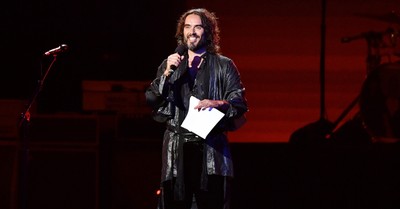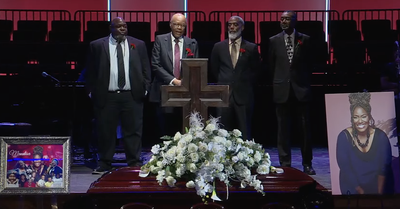What country would suffer a devastating disaster, killing 150 people and injuring over 1,300, and turn down relief from neighboring nations? Many experts thought North Korea would prove to be such a country following the mysterious train crash/explosion of April 22, in Ryongchon. The totalitarian regime headed by dictator Kim Jong Il has a long history of preventing the flow of information in or out of his communist state.
The Asia Times reports:
North Korea... has by no means embraced all aid, and appears to prefer televisions, diesel oil and cement to medical supplies. It rejected South Korea's offer to send aid overland by truck and it rebuffed Seoul's offer to send engineers to aid in reconstruction ...
While his government appears to be allowing some "aid" to trickle in, time will tell if the "Dear Leader," as Kim's people are forced to refer to him, will allow any of this international relief to be effective. Historically such relief does not make it to those in North Korea who need it most.
Many, however, are skeptical of such an incident being an indication of any future openness on the part of North Korea's government. Some feel that the North Korean dictator is using the accident to generate sympathy, and cash. "Whatever happens, Kim Jong Il will try to get money for it" according to North Korean defector Kim Yong Sung. Kim Yong Sung, an architect and former North Korean government official was one of several North Korean defectors who spoke to reporters through a translator April 28.
The group visited Washington D.C. to raise awareness of North Korea's prison camps and human rights violations. The defectors, part of the Democracy Network against North Korean Gulag (NK Gulag), joined with the North Korean Freedom Coalition (NKFC) last Wednesday to promote North Korea Freedom Day.
"The defectors who are coming to participate in this day are men and women brave enough to share their own tragic stories so the world can hear the truth about North Korea," said Sandy Rios, chair of the North Korea Freedom Coalition. "They will not let Americans commit the same crimes of ignorance that allowed the Holocaust to occur. If Americans continue to neglect the people of North Korea, then blame for these atrocities will one day rest in our hands."
The events of North Korean Freedom Day were designed to show support for the 23 million people trapped under Kim Jong Il's murderous regime according to NK Gulag co-founder An Hyuk, who led the defector's delegation. The defectors joined with protestors from U.S. human rights groups to participate in a rally on the lawn of the U.S. capitol building and lobby the U.S. Congress. "Kim Jong Il is one of the cruelest and [most] ruthless dictators in the World," says An Hyuk. "We hope together to see the day of democracy and freedom in North Korea."
And the plight of the North Korean people is now becoming better known now than in the past. In his 2002 State of the Union Address, often referred to as the Axis of Evil speech, U.S. President George Bush included North Korea in a list with Iraq and Iran of countries "arming to threaten the peace of the world."
President Bush drew great criticism for this statement. Many foreign policy experts claimed that such "rhetoric" will not improve diplomatic relations with the communist country. Yet, in the weeks and months since January 2002, more and more evidence testifies to the utter depravity of Kim Jong Il's administration.
One of the more dramatic stories in recent years is that of Norbert Vollertsen, a German medical doctor who lived in North Korea from July 1999 to December 2000. Dr. Vollertsen was allowed into North Korea with the non-profit relief agency, Doctors Without Borders. After donating his own skin to a seriously injured North Korean man who needed skin grafts, Dr. Vollertsen was awarded the "Friendship Medal of the North Korean People" and granted travel privileges throughout most the country. As a result, he has seen more horrors of Kim Jung Il's regime that perhaps any other Westerner.
Vollertsen found that in the country's "showcase" city P'yongyang, where Kim Jong Il and the elite government officials live, the hospitals were surprisingly state of the art. Yet the environment of the hospitals in the rest of country were disgraceful. According to Vollertsen:
The hospitals have no heating system. There is no running water ... there is no bandage material-nothing. There are still no baths, no blankets... There is no medicine. There is nothing a North Korean doctor can do. They are collecting some leaves in the forest in order to make some "nature medicine" in order to give something to the patients. But they do not even have any food to feed their patients. They do not have any food to feed themselves.
Part of North Korea's problem can be attributed to the famine that has gripped the nation for many years. Many experts feel that Kim Jong Il's management of the famine, however, has exacerbated the country's horrible conditions. According to a January report released by Amnesty International:
North Korea remains dependent on food aid to feed its people, yet government still prevents the swift and equitable distribution of this aid, while the population is denied the right to freedom of movement, which would enable people to go and search for food.
"Millions of North Koreans have died by starvation..." says Suzanne Sholte of the Defense Forum Foundation, a member of NKFC. "[T]here has been a deliberate effort by the Kim Jong Il regime to use food as a weapon against the North Korean people."
This is to say nothing of the human rights violations and the political prison camps. MSNBC reported last year that more than 200,000 prisoners are held in just five of the twelve prison camps in North Korea, a nation that has only 20 million people. According to U.S. News and World Report more than 400,000 people have perished in these gulags over the last 30 years.
Last year the U.S. Committee of Human Rights in North Korea released the report The Hidden Gulag: Exposing North Korea's Prison Camps. The study contains the testimonies of dozens of North Korea Prison camp survivors detailing horrendous and flagrant human right violations. Stories of brutal beatings, sexual slavery, public executions, torture during interrogations, and infanticide fill its pages.
About 20 defectors who arrived in Washington D.C. for North Korea Freedom Day had witnessed or endured the same sort of atrocities. In tears, Oh Yong Hui shared some of the details of her escape from North Korea, explaining that forced abortions and sexual exploitation were a common fate for defectors who are caught and returned. She described North Korea as "one large prison," saying also "we had to live like beasts."
The defectors were joined by several hundred students and human rights activists to draw awareness to the conditions of North Korea and show support for the North Korea Freedom Act now pending before Congress. North Korea Freedom Day activities included a demonstration in front of the National Holocaust Museum, and a rally on the west lawn of the Capitol Building, followed by lobby visits to Congressmen and Senators. Demonstrators carried signs with pictures of emaciated children and slogans like "Abolish Auschwitz in North Korea" and "Stop Human Experimentation." They chanted in both English and Korean "North Korea must be free!"
"History will judge harshly the North Korean regime," the State Department's Ambassador John Hanford told rally-goers. "We must stand with [the North Korean people] and speak out for them.
Several Congressmen and Senators also addressed the rally crowd that numbered over 300. Senator Sam Brownback (R-KS) Chairman of the East Asia Subcommittee of the Senate Foreign Relations Committee and a sponsor of the North Korea legislation told demonstrators the people of North Korea need our actions, prayer and support. "Tell the North Korean people that help is on the way," Brownback said.
"Reports have come out that the chemical experiments on political prisoners... are ongoing in North Korea. What more evidence do we need before we do something," says Dennis Halpin, staff member of the House International Relations Committee. "But does the world care? Are the words of the Holocaust Musesum in Washington 'Never Again' once more to be ignored?"
Stephen McGarvey is the Editor of Interactive Media for Prison Fellowship's The Wilberforce Forum, and Chuck Colson's BreakPoint radio program. Stephen is also a freelance writer and a fellow of the WORLD Journalism Institute. He lives in northern Virginia with his wife Candice.










